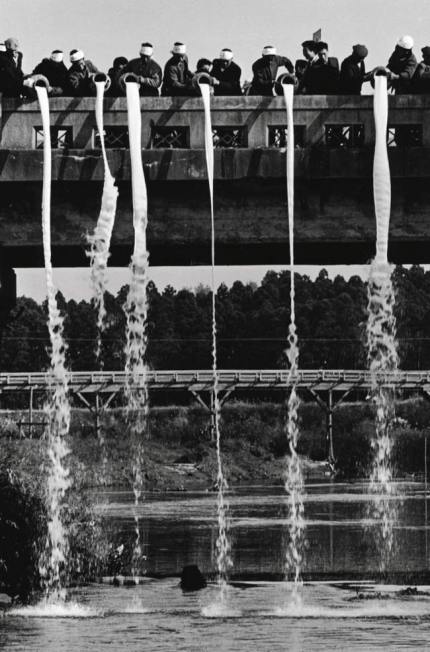Subscribe to ShahidulNews
 |
I don’t often get brainwaves. But there was something about David Miliband?s interview, shown on a private TV channel, that inspired me. I don’t often watch TV either. It was just fate, I guess.
To be honest, it wasn’t only Miliband, the UK Secretary of State for Foreign and Commonwealth Affairs. There have been others. From Britain. From the US. From Australia. From Canada, Germany, the European Union. Some have been visiting dignitaries. Others were diplomats, some of them still posted here. They have given us a steady stream of advice. Some of it was sought, much of it volunteered.
On what to do. How to do. The practical steps involved. The people required. The mechanisms needed. The institutions that must be in place. The values to inculcate.
As a recipient of this sudden surge of Western interest in Bangladesh, a poor, hapless nation, led often enough by wretched, self-serving leaders, as a recipient of endless lectures on democracy, often embellished by locomotive metaphors (‘democracy derailed,’ ‘getting democracy back on track’), I have been at a total loss. So much is being expected of us. What are we to do? And, being part of the derailed ‘us’, what am I to do?
It was Miliband who showed me the way. I knew what I had to do before the interview was over. The relationship between Bangladesh and Britain should be a two way street. We should not only take, we should also give. It should be a modern relationship, as befits a modern world. We should be partners, that’s what he had said.
The mind works in strange ways. Suddenly I remembered Mohammod, a Palestinian friend of mine, from my Sussex days. The three of us, the third being my American flatmate, had been chatting in the kitchen. He had been invited for dinner. “You western people, you are People of the Book,” he had said. “How to cook, how to garden, how to mow the lawn, how to take pictures. For everything, you people have a book. You follow the instructions 1, 2, 3 of your little book.” His laughter had been irresistible. We had joined in. I myself less grudgingly.
Write a How To Do on Democracy? Or A Beginners Guide to Democracy? But why on earth? Why me, and for whom? Dare I?
I got hold of a CD copy of the interview, I transcribed it. I read the transcript several times. It’s not a lengthy interview, only twenty minutes or so, but of course, it’s quality not quantity that matters. It’s a question of having the right attitude, of having a positive frame of mind. I quickly marked out Miliband’s check list for Bangladesh: (i) full, free and fair elections this year (ii) buttressing institutions of a strong civil society (iii) an independent judiciary which treats all cases on merit without fear or favor (iv) a strong media that asks tough questions, and also (v) strong systems of education, health and local government, since the latter are important supports to the formal institutions of democracy.
Miliband was not asked tough questions. The interviewer was not a recognised journalist. Knowing English seemed to be more important. Being able to read questions off the cue card seemed to be more important. I don’t know how these things work, but the end result was there for all to see. No ruffles, no stress, no strain. No curiosity. Just sheer complicity. In the path to democracy project, a project in which Bangladesh is the eager learner, and Britain, as represented by its Foreign Secretary, has all the answers. Tempered, of course, with the appropriate dash of modesty (‘I have been in Bangladesh for six hours, I have to be careful about pretending to be an expert on Bangladesh’).
Complicity doesn’t just happen. It is an act of creation, and there is no reason to assume that a lot of effort isn’t involved. What were the ground rules at work in Miliband’s TV interview? My guesses are made on the basis of the effect that was achieved. That made it so tidy.
Rule 1: Take everything at face value. When Miliband says, British citizens of Bangladeshi origin “look very closely at developments in Bangladesh. They have family here, they worry about economic, social, political issues,” do not ask whether they are similarly concerned at developments in Britain. At the increasing loss of liberties. At Islamophobia. Do not ask how they are contributing to the movement for democracy in post 9/11 Britain, a Britain decidedly less democratic than it was earlier. Don’t take up the “two-way process” seriously.
Rule 2: Ask self-evident questions, these help to elicit self-evident answers. “What are your views on the road to democracy for Bangladesh? Or where are we on the roadmap for democracy?”, this is a good instance. It helped the Honorable Foreign Secretary come up with the checklist I mentioned above. Do not engage with his answers. When he speaks of Britain and Bangladesh’s “shared interests,” do not ask him whose interests he’s talking about. Whether that of the Labour government, or that of the British people. Do not ask him whether the Blair, or the present Brown, government genuinely represents the interests of the British people. Do not breathe a word about the million strong anti-war demonstration held in London several years ago.
When Miliband speaks of trade relations between Britain and Bangladesh, of Britain as an investor, do not raise the issue of Asia Energy (re-named Global Coal Management). Do not bring up the issue of Phulbari, of the strong and vibrant people’s movement against Asia Energy, against open pit mining. Do not quote the British High Commissioner’s statement, “Many of you will be aware of UK-based Asia Energy Corporation?s contract to mine coal at Phulbari, but may not know that other British investments in coal and power generation are also waiting for the green signal from the Government here. These new projects, when implemented, would double the value of the UK?s cumulative investment in Bangladesh.” Nor this one, “Yes, I will continue to lobby for new British investments particularly in the energy sectors in Bangladesh” (same speech).
When Miliband speaks of his passion for the environment, do not ask him why energy corporations do not calculate carbon costs when they declare their assets. When he says, “Don’t repeat our mistakes,” do not ask him whether that impacts on Asia Energy’s push for open pit mining. (Do not mention conflict of interest between the government and people of Bangladesh. Especially avoid mention of Dr. M Tamim, the Advisor’s Special Assistant for Power and Energy Ministry and his private consultancy).
Rule 3: Do not mention instances to the contrary. When Miliband says, “So the road to democracy first of all, needs to have full, free and fair elections,” ” the elections are seen to be a credible expression of the will of the Bangladeshi people,” “help make sure that democratic voices are heard through the ballot box not outside it,” do not raise questions about the overthrow of a popularly elected leader in Iran in 1953. Do not raise any questions about Hamas. Do not ask why 36 of the 39 Hamas Palestinian Legislative Council members that the Israelis abducted in 2006, are still detained. Why some of them haven’t even been charged. Do not say the un-sayable, that more Palestinian legislators are in prison than legislators from all the other parliaments in the rest of the world put together. Do not ask tough questions.
When Miliband speaks of the necessity of an “independent judiciary which treats all cases on merit without fear or favor, a strong media that asks tough questions,” do not bring up the Hutton report (2004) on the BBC, regarded by several national newspapers as an “establishment whitewash.” The report was considered to be uncritical of the government. Don’t mention former Chilean dictator General Augusto Pinochet’s name either, and why Britain had refused to extradite him.
Rule 4: Treat history as irrelevant, trivialise it. Use it as a decorative word, as having no content. You can utter the words, Bangladesh and the United Kingdom share a very strong historical linkage, but steer clear of what that “linkage” involves — British colonialism, exploitation, historical struggles, injustices, movement for freedom.
Rule 5: Treat what is happening in the world as irrelevant. Do not talk of the blockade of Gaza, of Israeli settlements, of the West’s refusal to talk to Hamas, Israel’s apartheid practices, its land thefts, slaughter of Palestinian children. Of the slow genocide that it is inflicting on defenceless civilians, bulldozing houses, torture and assassinations. Of voices of protest. Of Rachel Corrie. Do not talk of Iraq. Or Afghanistan. Do not mention that a recent report cites as many as 6.6 million post-invasion excess deaths in Occupied Afghanistan as of February 2008. That post-invasion excess deaths in the Iraq War are now about 1.5-2 million.
Absolutely do not mention that UK playwright Harold Pinter, in his 2005 Nobel Prize Acceptance Speech urged the arraignment of Bush and Blair before the International Criminal Court for war crimes. He had said, “How many people do you have to kill before you qualify to be described as a mass murderer and a war criminal?
Postscript:
In a recent address before an audience at Oxford University, in honour of Myanmar opposition leader Aung San Suu Kyi, David Miliband has said, “the goal of spreading democracy should be a great progressive project.” He refused to categorically rule out military action against Iran.
The road to democracy in Bangladesh as chalked out by her western partners seems to be signposted with the messages: Take everything at face value. Do not ask tough questions.
First published in The New Age on 4th March 2008

 Jyotirmay Guhathakurta and Basanti Guhathakurta with seven year old daughter, Meghna and nephew Kanti in Gandaria, Dhaka, 1966. Bangladesh.
Jyotirmay Guhathakurta and Basanti Guhathakurta with seven year old daughter, Meghna and nephew Kanti in Gandaria, Dhaka, 1966. Bangladesh.  Choles Ritchil. Photographer unknown
Choles Ritchil. Photographer unknown Mutilated body of Choles Ritchil. Photographer unknown
Mutilated body of Choles Ritchil. Photographer unknown Cleaners clearing debris outside the Rangs Building to make way for traffic. Early hours of the morning. 8th December 2007. Dhaka. Bangladesh. ? Zaid Islam
Cleaners clearing debris outside the Rangs Building to make way for traffic. Early hours of the morning. 8th December 2007. Dhaka. Bangladesh. ? Zaid Islam Demolition workers who have set up their own emergency team, warm themselves at night. 8th December 2007. Dhaka. Bangladesh.
Demolition workers who have set up their own emergency team, warm themselves at night. 8th December 2007. Dhaka. Bangladesh. 


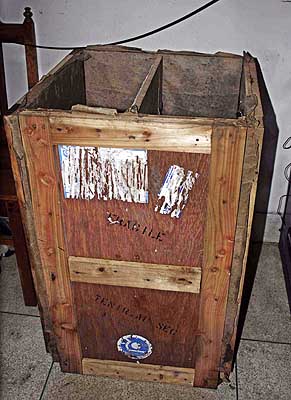

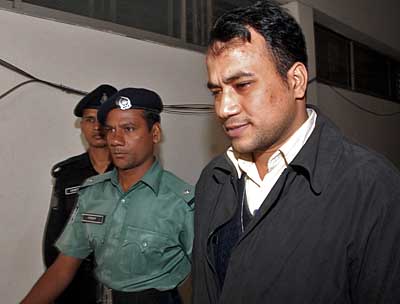
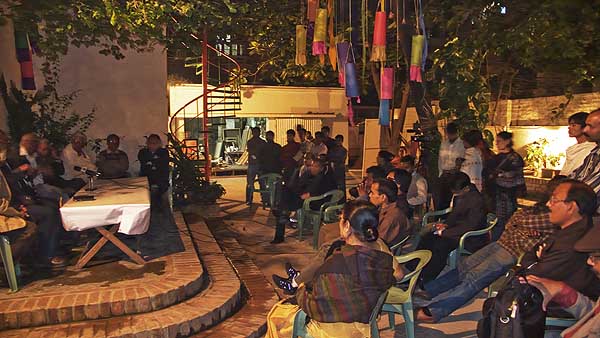
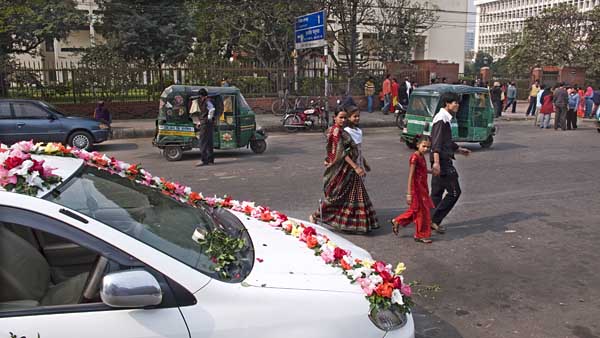
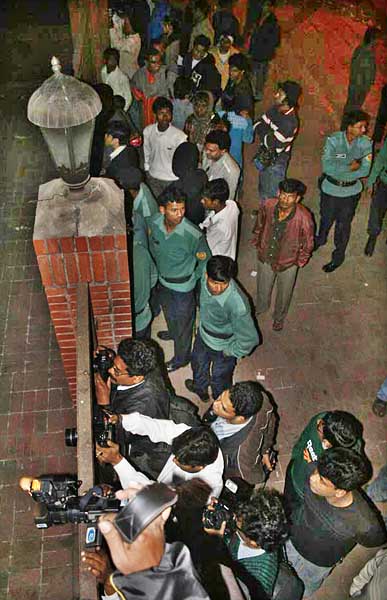
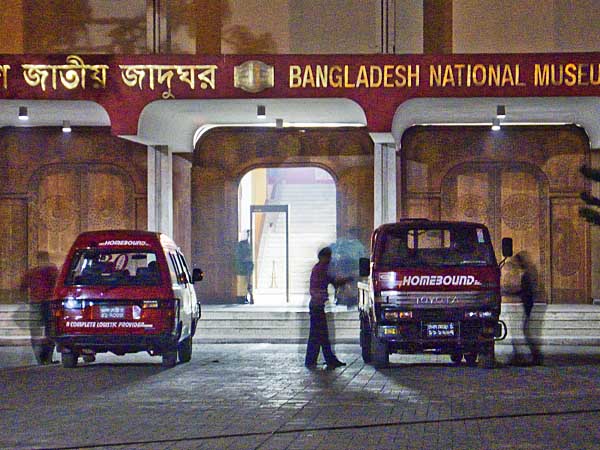
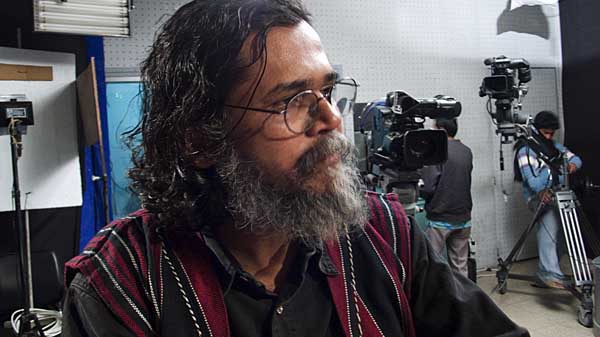
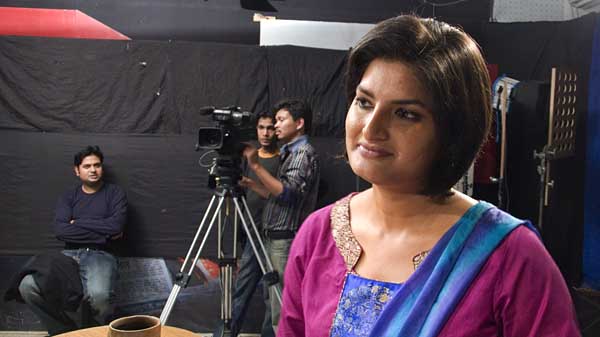
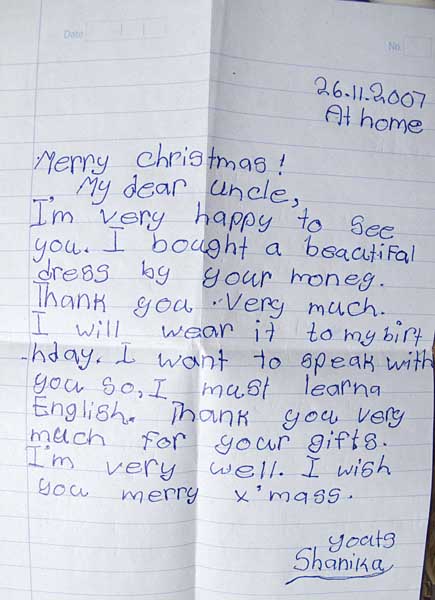 Letter from Shanika, received earlier in the month.
Letter from Shanika, received earlier in the month. 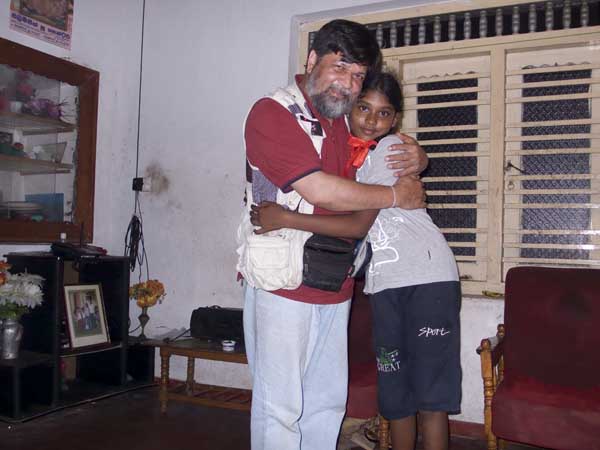 During an assignment for Help The Aged in Sri Lanka last month, I had sneaked a visit to Totagumuwa, in Hikkaduwa to see Shanika. The Tsunami had taken away her mother and her three sisters (including her twin sister). Phot
During an assignment for Help The Aged in Sri Lanka last month, I had sneaked a visit to Totagumuwa, in Hikkaduwa to see Shanika. The Tsunami had taken away her mother and her three sisters (including her twin sister). Phot
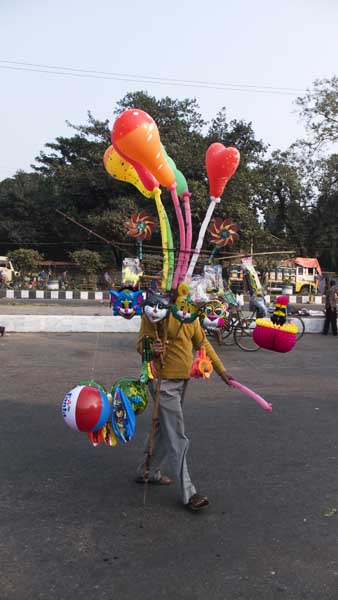


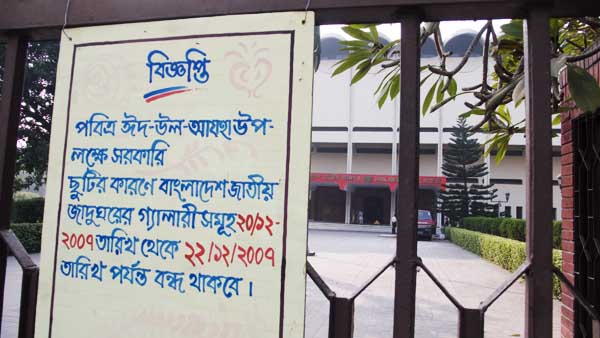
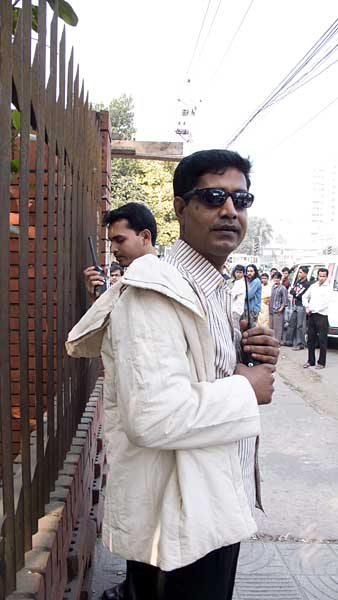
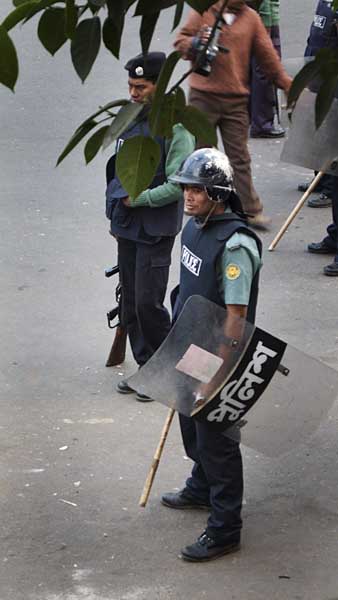
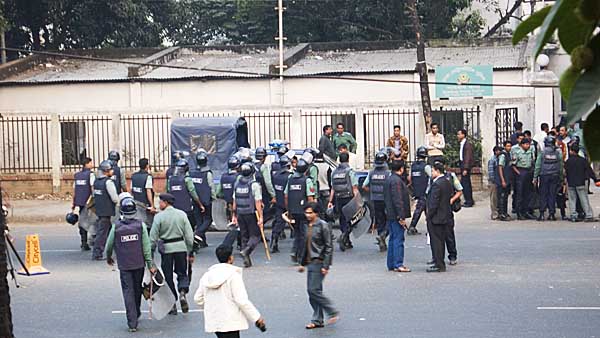
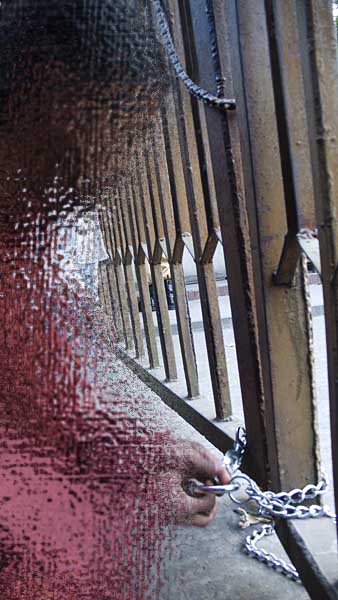
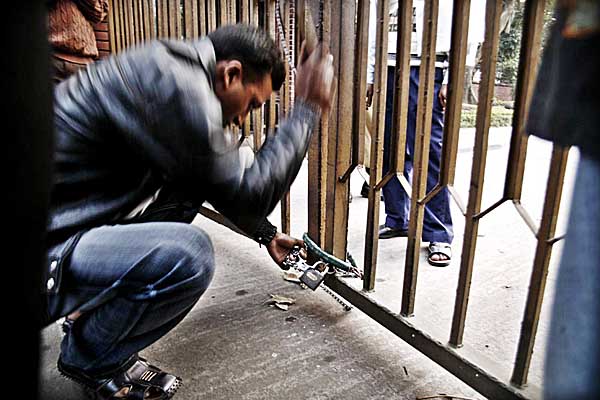
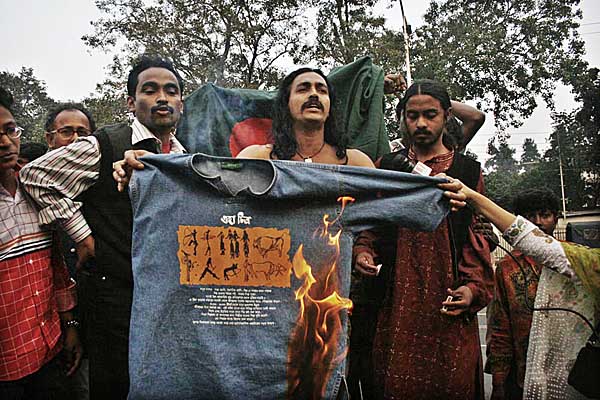
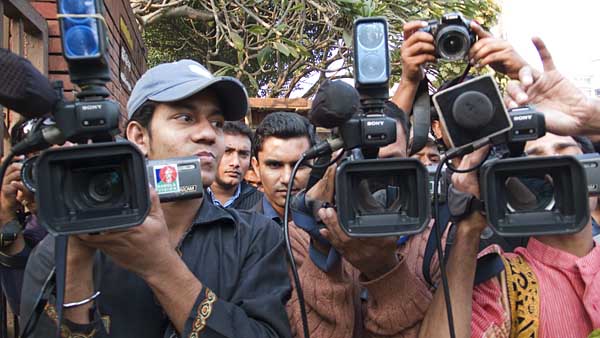
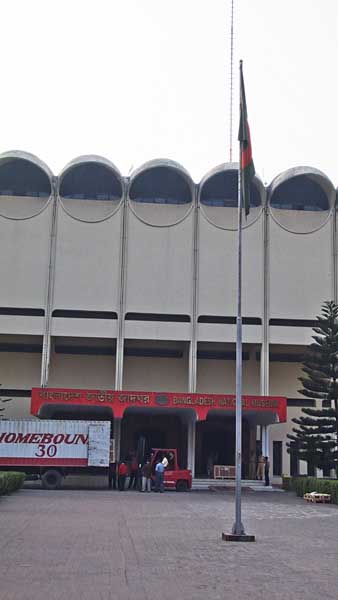
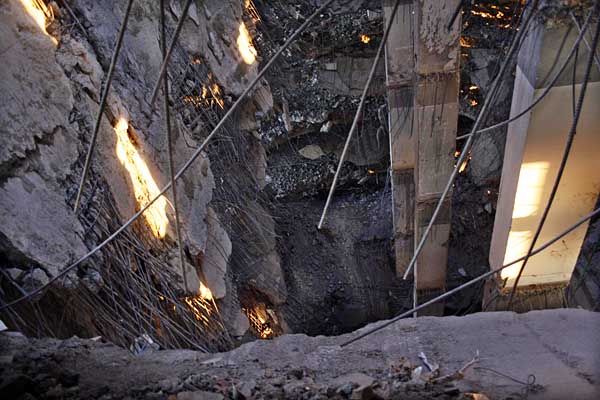 Collapsed floor of Rangs Building. December 9. 2007
Collapsed floor of Rangs Building. December 9. 2007 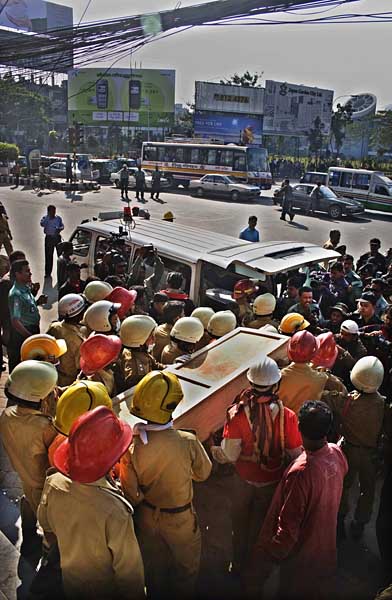 Body released by Fire Brigade being sent to morgue.
Body released by Fire Brigade being sent to morgue. 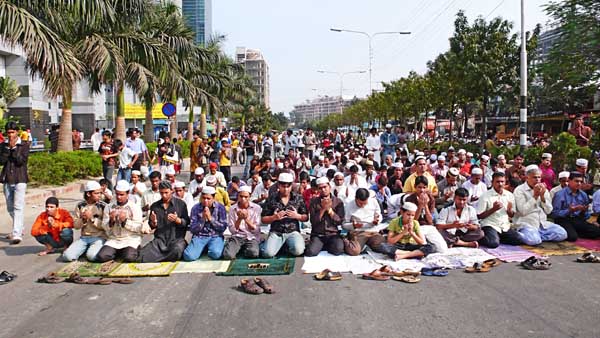 Jumma prayers on Panthapath. Friday December 7. 2007. ? Shahidul Alam/
Jumma prayers on Panthapath. Friday December 7. 2007. ? Shahidul Alam/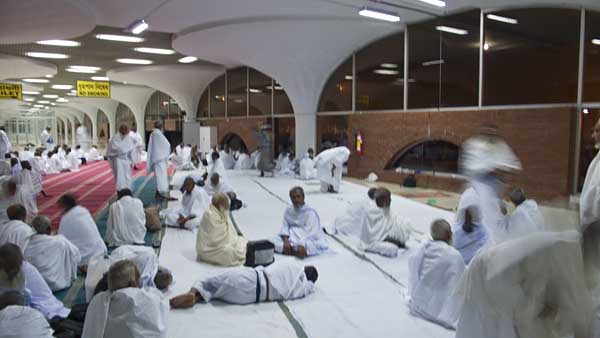 Hajis at Zia International Airport. Saturday December 8. 2007. ? Shahidul Alam/
Hajis at Zia International Airport. Saturday December 8. 2007. ? Shahidul Alam/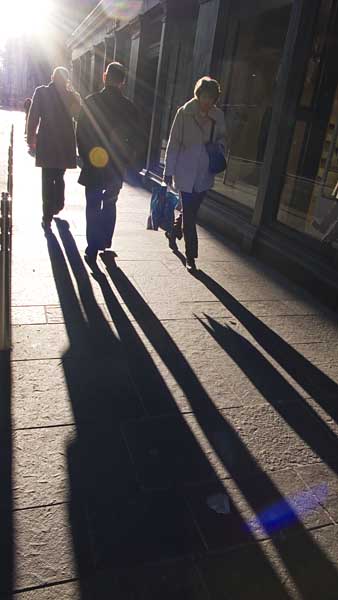 Glasgow. December 10 2007. ? Shahidul Alam/
Glasgow. December 10 2007. ? Shahidul Alam/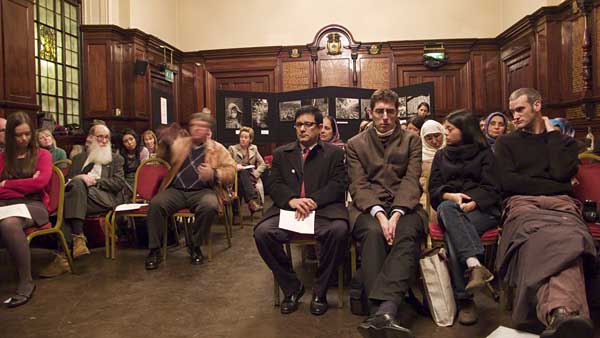
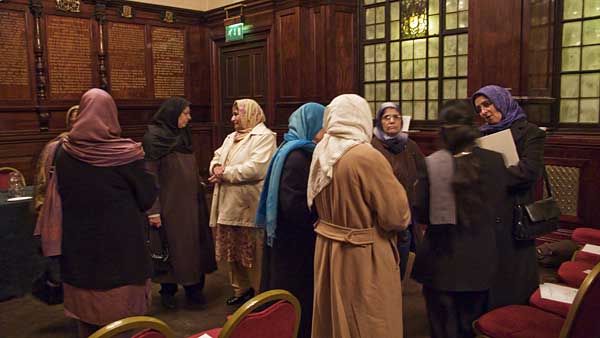
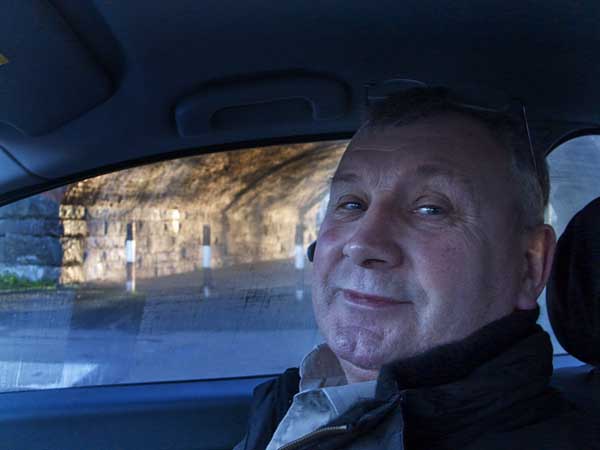

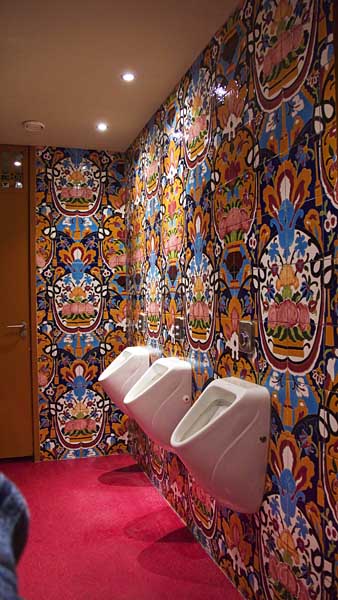 The ornate loo at the Bazar Middle Eastern restaurant in Amsterdam. December 10. 2007.
The ornate loo at the Bazar Middle Eastern restaurant in Amsterdam. December 10. 2007. 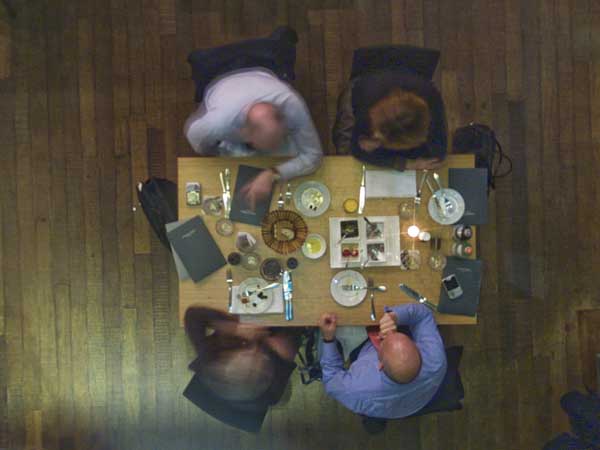
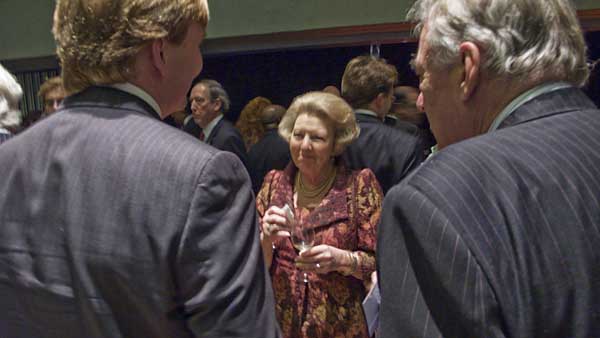 Queen Beatrix at Prince Claus Fund Award Ceremony at Muziekgebouw. Amsterdam. Dec 12. 2007.
Queen Beatrix at Prince Claus Fund Award Ceremony at Muziekgebouw. Amsterdam. Dec 12. 2007. 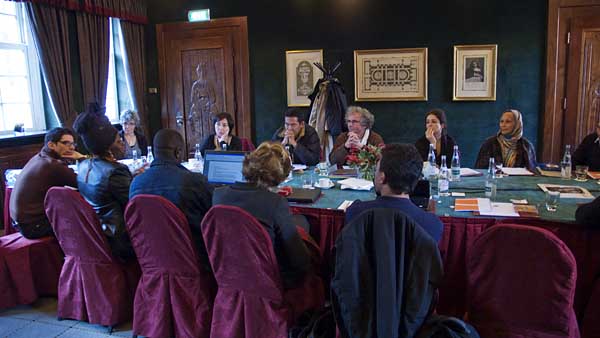
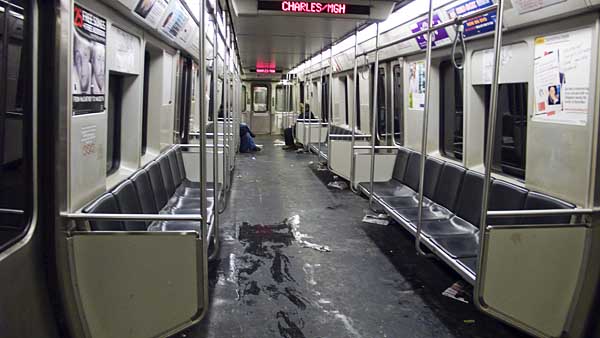
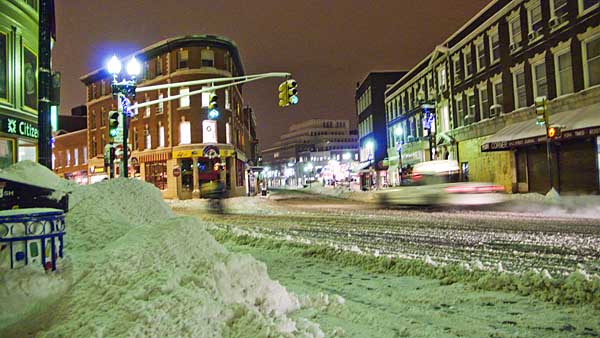 Outside Harvard train station at 2:00 am. December 14. 2007.
Outside Harvard train station at 2:00 am. December 14. 2007. 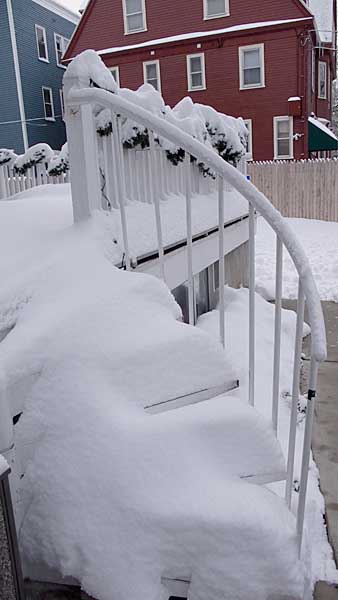 Stairs at Irving House. December 14. 2007.
Stairs at Irving House. December 14. 2007. 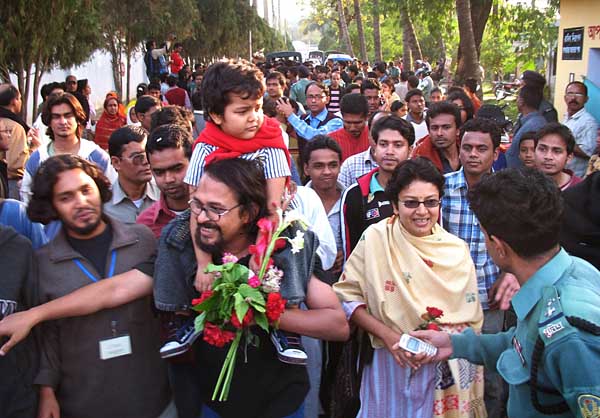 Detained Rajshahi University teachers, released after being granted a presidential pardon. December 10. 2007.
Detained Rajshahi University teachers, released after being granted a presidential pardon. December 10. 2007. 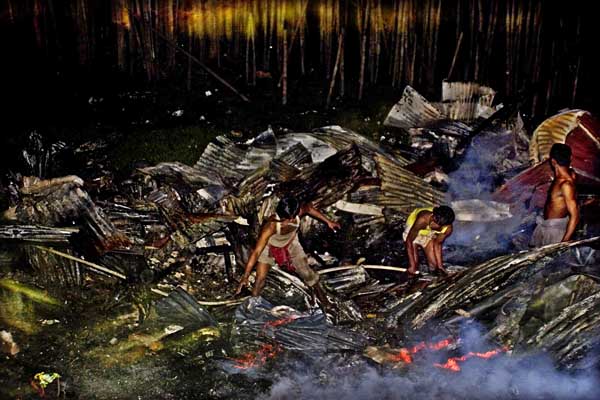 Fire in Begunbari slum. December 15. 2007.
Fire in Begunbari slum. December 15. 2007. 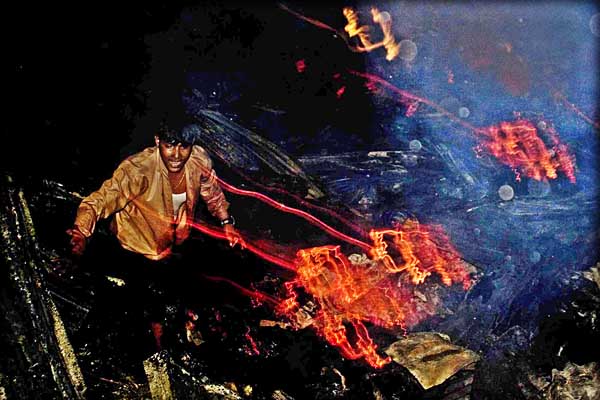

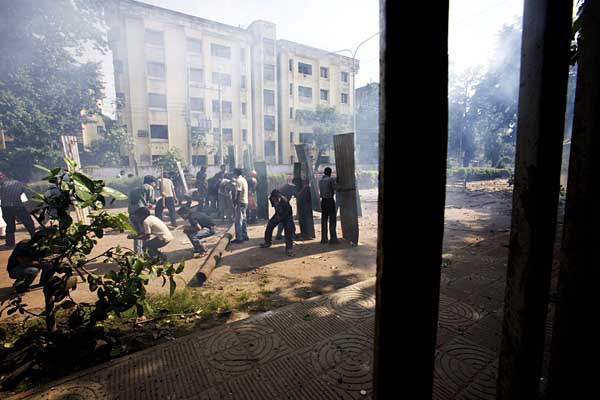
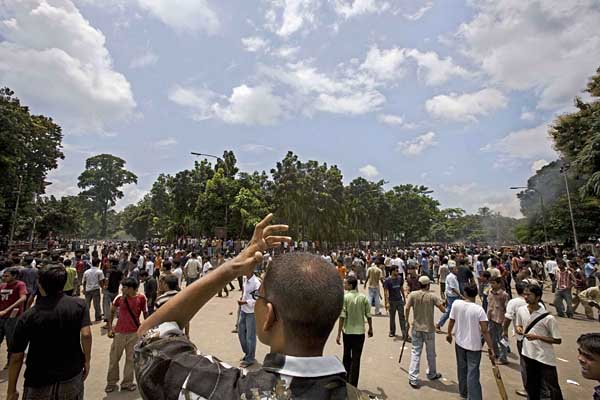
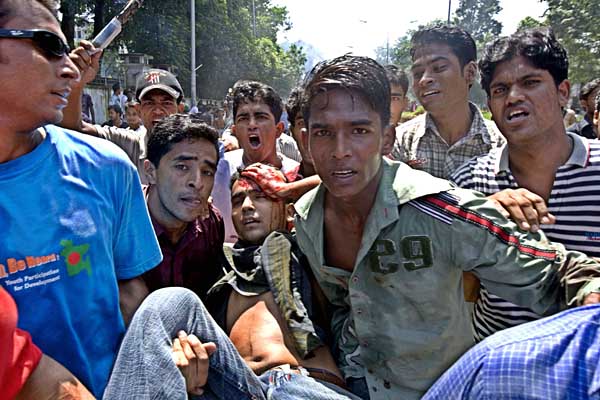
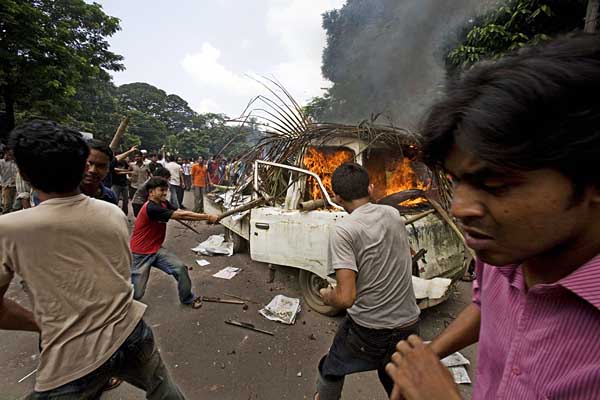
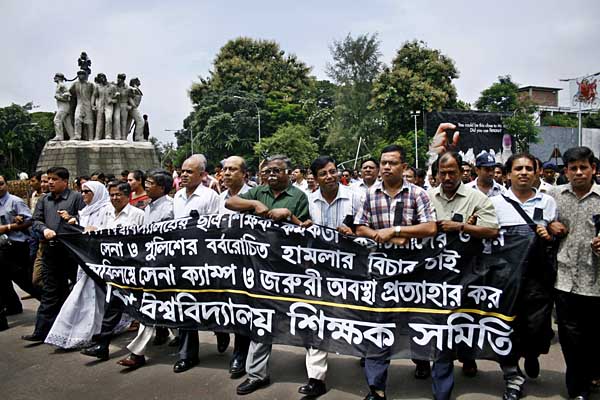
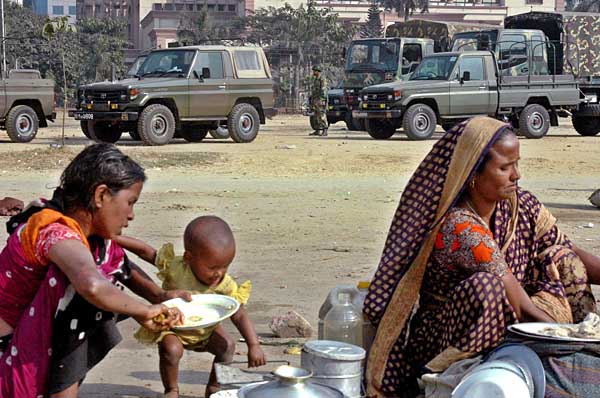
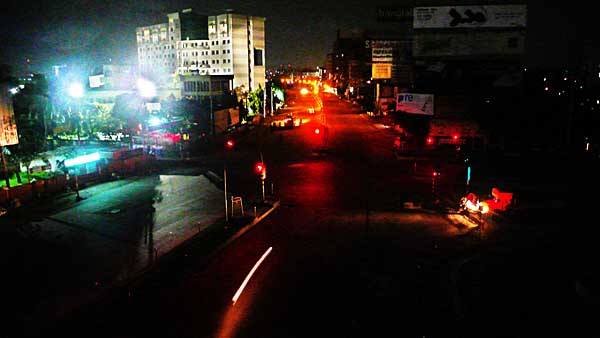
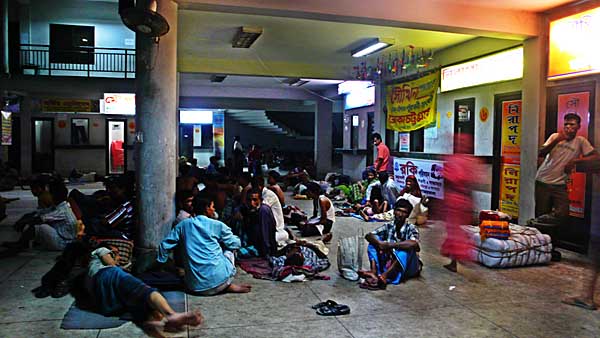
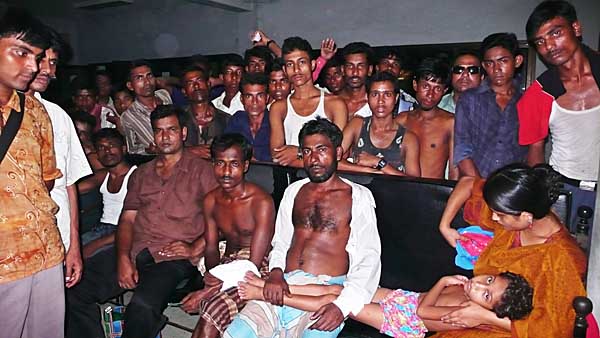
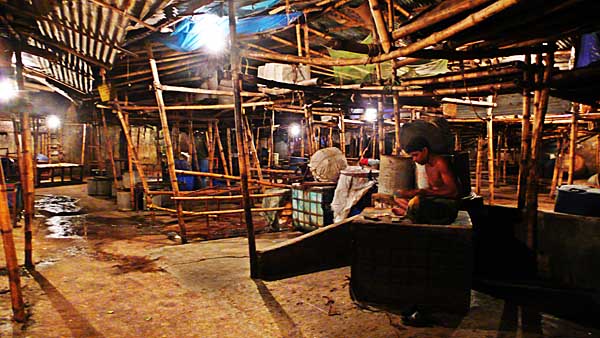
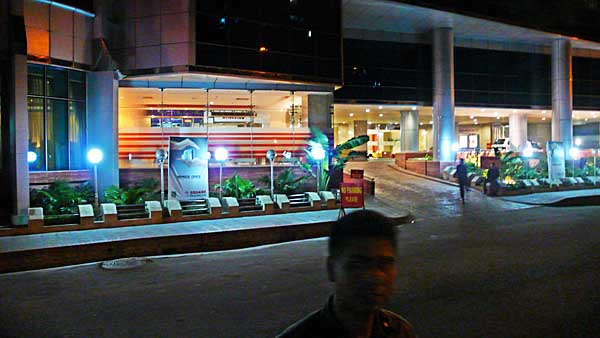
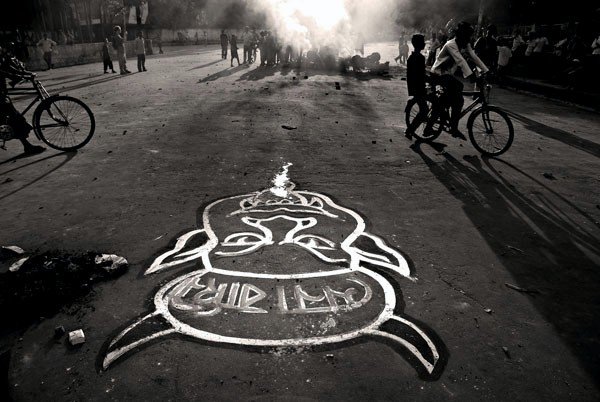

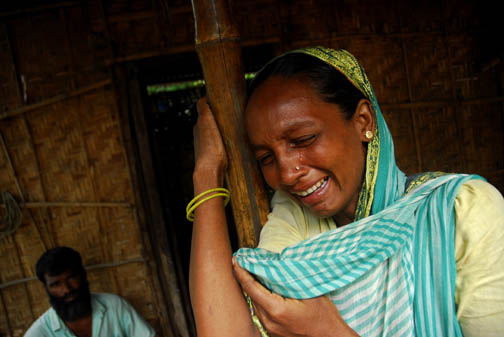 ?I have lost a son, maybe I?ll lose another, but I won?t let them setup a coalmine here.? To Tahmina Begum who had lost her son Toriqul to police bullets, her land was also her family.
?I have lost a son, maybe I?ll lose another, but I won?t let them setup a coalmine here.? To Tahmina Begum who had lost her son Toriqul to police bullets, her land was also her family. 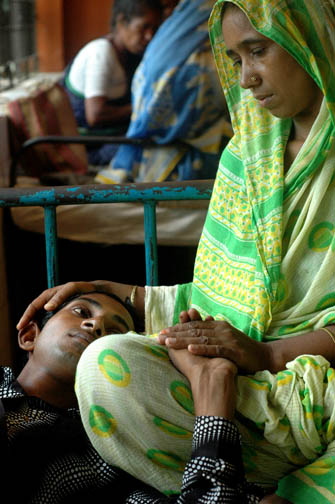 It could have been a ?B? rated western except that it is set in the east.
It could have been a ?B? rated western except that it is set in the east. 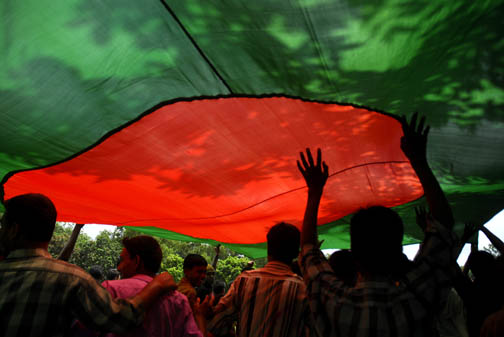 People wanting to hang on to their ancestral land versus mining companies wanting huge profits. There have been only minor changes from previous scripts. When farmers wanted fertilizers and seeds, the police had opened fire killing them, when they wanted electricity to irrigate their soil, the police had opened
People wanting to hang on to their ancestral land versus mining companies wanting huge profits. There have been only minor changes from previous scripts. When farmers wanted fertilizers and seeds, the police had opened fire killing them, when they wanted electricity to irrigate their soil, the police had opened 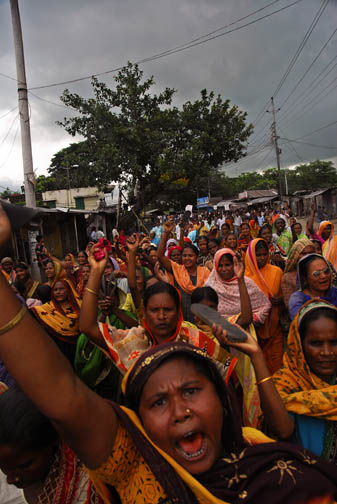 fire killing them. Now that they want to retain their land rather than have it converted into coal mines again the police have opened fire killing them.
fire killing them. Now that they want to retain their land rather than have it converted into coal mines again the police have opened fire killing them. 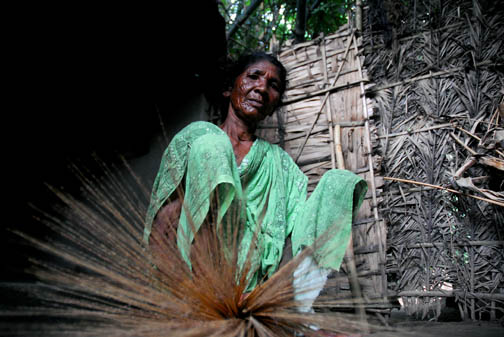 The Shaotals, being indigenous minority groups, find themselves even more vulnerable within this persecuted community. In the shootings on the 26th September 2006, in Phulbari, Dinajpur, in northwestern Bangladesh, at least six villagers are known to have been killed, over a hundred are said to be missing.
The Shaotals, being indigenous minority groups, find themselves even more vulnerable within this persecuted community. In the shootings on the 26th September 2006, in Phulbari, Dinajpur, in northwestern Bangladesh, at least six villagers are known to have been killed, over a hundred are said to be missing.